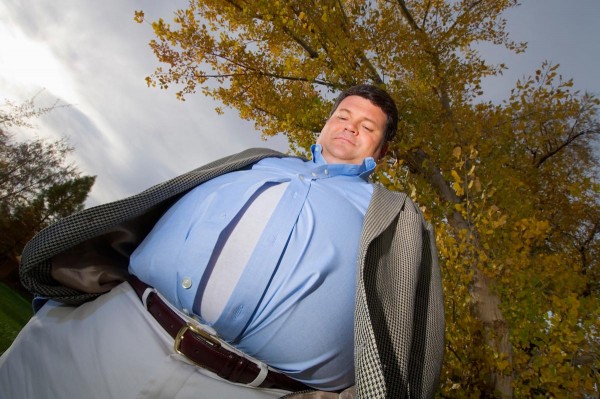Well, that was awkward. Or, at least, it’s awkward now that you know what you did.
Without knowing it in the first place.
Or something like that.
According to the fashion writer at Bustle, Jodie Layne, you may have been “fat-shaming” someone and never realized it (who comes up with these terms, by the way?). Not that you’re a horrible person, you see, maybe just an absent-minded one. Or you’ve got other issues more important to you. Or… Something.
Payne came up with seven ways that people fat-shame the overweight without realizing it. Though some people do realize it and in fact make it a point to say so. As Payne wrote in September:
This past week, it’s seemed impossible to click on anything or browse any social media platform without running into a reaction to comedian Nicole Arbour’s fat-shaming video. As most of us know by now, it was full of hateful words that mocked the pain of and stripped the humanity from others. At its best, it was unoriginal — nothing that any fat person hasn’t heard a million times before. What the video did do, however, was remind me of the importance of educating the masses on fat-shaming in general.
(Wait – did Payne “fat-shame” by linking to Arbour’s video? This PC stuff is so new to me – I’m so confused! Well, okay – Payne linked to a webpage on another site that actually embedded the video in its story about Arbour’s video – but she facilitated and enabled the video, so… fat-shaming without realizing it? You be the judge.)
Payne (who looks overweight, by the way – which might help explain her angst) says that thin or regular-sized people can’t tell “a fat person” (there’s that judgment thing again!) that fat-shaming isn’t real and does not exist. That’s because, she says, there are so many examples of it that are inherent in our daily language, media and culture.
“Fat people are regularly shamed for their weight by doctors” (who have an obligation to their patients to be honest with them about their health conditions – hello??) “and told that being thin is morally superior” (actually, doctors don’t say things like that, but if that’s what the fat person wants to hear, then what’s a poor physician to do?).
Fat people oppression is very real, Payne claims, and “it causes serious danger to our health and wellness” (actually, obesity does that, which is a lot like the fat shaming the fat – right?).
So, what are those seven fat-shaming things that we don’t realize we’re doing? In no particular order:
1. “I mean, I totally get it if people are fat because of a medical condition or something.”
But, but… A lot of overweight people claim they are the way they are because of a medical condition (hypoactive thyroid, for instance). So isn’t that an accurate statement?
No! This is Fat-shaming, says Payne.
2. “You’re not fat! You’re beautiful!”
And really, isn’t beauty in the eye of the beholder? And what if the fat person says something like this first, “I wish I wasn’t so fat”? Is the above response appropriate then?
So many rules.
3. “Please stop calling yourself fat. Don’t talk about yourself like that.”
What if that kind of talk makes your friends uncomfortable? What is the fat person’s obligation in this fat-shaming equation?
4. “Ugh, I’m so fat.”
Payne insists it’s okay for fat people to shame themselves, but you can’t (even if you didn’t know you were). So this essentially requires the fat person to acknowledge the obvious and for everyone else to ignore it.
5. “You have such a pretty/handsome face!”
According to Payne, if you don’t think the rest of a fat person is beautiful/handsome, you’re not allowed to just acknowledge their faces.
6. “I can’t believe I lost 20 pounds! I feel amazing!”
Payne believes that you can never praise yourself for sticking to diet goals around fat people who, apparently, aren’t. So, only praise the fat person – even if it’s made-up praise – but never yourself.
Hey, Ms. Payne – self-centered much?
7. “Oh, you’re wearing that?! You’re so brave!”
Maybe that is a cue for you, the overweight, to not wear something. Payne acknowledges a truth – that we all tend to judge looks and clothing and so forth – so why put a huge red flag on your backside on purpose? Just saying.
Then again, if you want to wear something, wear it. And let the chips fall where they may.
Read the whole pathetic, self-absorbed column here.
Sources:


